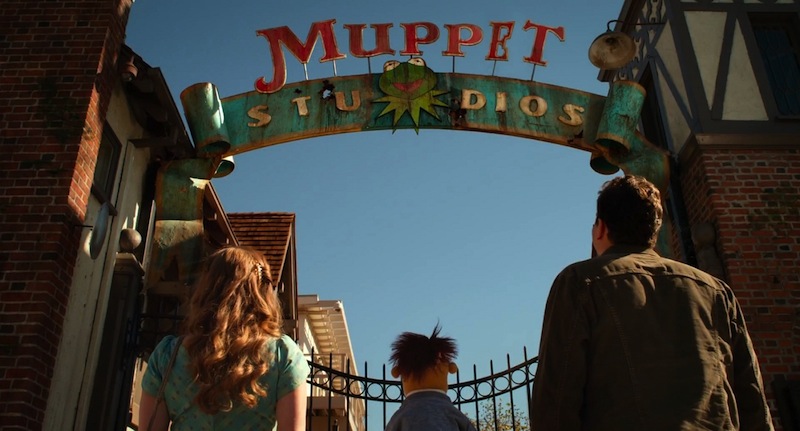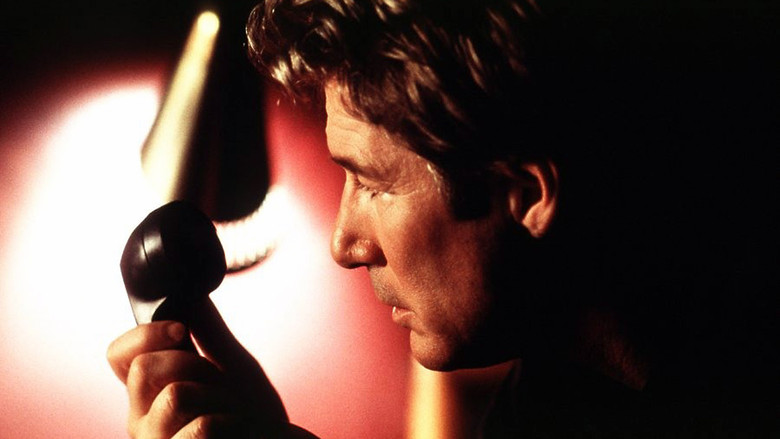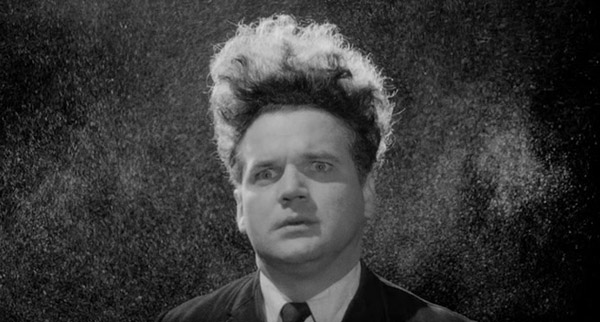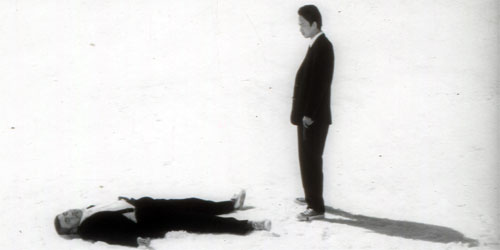Here are some miniature reviews I just pounded out based on films I’ve seen over the past five months. I was meaning to review them all when I saw them, but I just got behind. Here I am now, catching up.
Heat
1995. Directed by Michael Mann

Here are some miniature reviews I just pounded out based on films I’ve seen over the past five months. I was meaning to review them all when I saw them, but I just got behind. Here I am now, catching up.
Heat
1995. Directed by Michael Mann

I saw quite a few films in theaters this past holiday season, thanks in part to some awesome friends. Here’s the rundown:
The Muppets
Directed by James Bobin

People have been down on this film for being too nostalgic and too meta, and though I sympathize, I still enjoyed it immensely. As almost everyone has already said, it’s great to see the Muppets on the big screen again. Kermit and Piggy may have slightly different voices, the new characters may be a bit bland, and the musical pieces a little uninspired, but the overall product is a lot of fun. My only real gripe is that the tone of the humor has shifted a tad. The muppets used to be about wide-eyed idealism and corny, innocent jokes, but now it seems they have strayed into the realm of youtube era randomness humor, where the jokes all rely on the unexpected. While this shift in humor was noticeable, it didn’t detract from the film and was actually very well applied. The comedy writing here by co-star Jason Segel is top-notch and I look forward to another Muppet project with him at the helm.
It’s been a while since I’ve done one of these. Since January actually. Wow.
The Mothman Prophecies
2002. Directed by Mark Pellington

Tron: Legacy
2010. Directed by Joseph Kosinski

I’ve never seen the original Tron, but Disney’s revamped sequel told me pretty much everything I needed to know. A young computer programmer named Kevin Flynn created both a popular video game and an alternate reality world in which he had many adventures. Somehow he got lost in this world, and in the process left his traumatized son Sam to run his video game empire. Sam has finally found a way into this alternate reality, but since his father became lost in it, it has become a very dark place.
True Grit
2010. Directed by Ethan and Joel Coen

When talking about this movie with a friend I mistakenly labeled it the first of the Coen’s adaptations. Obviously that’s not true. The Coen brothers’ first adaptation was their 2007 film, No Country For Old Men, which was almost entirely faithful to writer Cormac McCarthy’s 2005 novel of the same name. And the Coens have been equally faithful with their latest film adaptation, True Grit, based on a novel written in 1968 by Charles Portis.
To Joy
1850. Directed by Ingmar Bergman

My first Bergman film! If you read this blog much, you know I’m a big Woody Allen fan, and since Allen’s favorite filmmaker is Bergman, I knew I had to watch some of his films. I grabbed two at random in the library last week. One was To Joy, a film that really runs the gamut of drama and both surprised and delighted me. What can I say that can even come close to all the well-educated published discussions of Bergman’s films? Probably nothing, but I can state my observations. First off, the language is beautiful. I’ve never seen a Swedish film with subtitles, and I was surprised by how melodic the language is. Secondly, the acting is raw and passionate to a degree I’ve never seen. It’s both melodramatic and realistic and it really drew me in. The film’s story is incredibly dramatic. A young couple meet while working in an orchestra. They live together and eventually get married. They separate multiple times, due mostly to the man’s infantile nature and lecherous tendencies, but each time they re-unite, they come closer. The title is also the focus of the story. What is joy and how do we find it in others? A tragic ending nevertheless concludes the film with a strange poignancy. For Bergman, joy can be found even in suffering not because of any Christian hope, but simply because of the spirit of human love and passion. To Joy is an excellently photographed and acted film with a wonderful classical score. I’m looking forward to seeing more of Bergman’s films.
It wasn’t the best year for movie-going. Iron Man 2 was a disappointment, Harry Potter wasn’t half as good as it could have been, and apparently the new Narnia film wasn’t too hot either. Big surprise. All the re-tread summer action stuff and cg animation just kind of slipped past me without notice, and when I finally saw Toy Story 3 on DVD I was underwhelmed. Even the art cinema down the street hardly played a single film that sounded interesting. Thus, most of my movie viewing this year was classic and from the library.
That being said, I did find myself in the cinema a few times this year, often for repeat viewing of the same films, and these are the best I saw.
White Heat
1949. Directed by Raoul Walsh

Film noir used to be a moral medium. Sure, the main character in White Heat, played powerfully by James Cagney, is a homicidal criminal with major emotional issues and a mean streak a mile wide, but he’s clearly presented as the bad guy, and the intricate FBI plot to take him down leads to a thrilling and satisfyingly just ending. That’s not to say that Cagney’s character gets no sympathy. As the story progresses we get to see deeper and deeper into his character and motivations, but his immoral actions are never justified. Basically, you feel for Cagney, but you root for the cops. Now most noir films have descended to Sin City-level depravity, anti-authority sentiments and moral relativism. We could use more films like White Heat, where strong morality and engaging gangland action go hand-in-hand.
I’ve been reading a lot of classics lately, and I thought I’d do some rather candid reviews of them. Here’s my first.
The Jungle
1906. By Upton Sinclair

I just finished reading Upton Sinclair’s The Jungle. It’s a very well written piece of social commentary and a powerful work of propaganda. Ninety percent of the novel I can get behind. In it, Sinclair brilliantly tells the tale of the immigrant man Jurgis and his downward spiral through the dante-esque levels of corruption and greed that plagued American industry and society at the time. In dramatically charged, tragic yet entertaining prose, Sinclair realistically portrays life in the slums of Chicago, using the character of Jurgis as a vehicle for the reader to explore the foul strata of turn-of-the century working-class American society. Jurgis works in a slaughterhouse, a fertilizer plant, and a harvester factory; he becomes a jailbird, a bum, a charity case, a criminal, a small-time politician, a strike-buster, and finally a socialist. Throughout his adventures, the reader is shown an intricate web of injustice and corruption, and the human suffering and destruction it brings. The last ten percent is a rosy advertisement for the socialist party and the heaven-on-earth state it promises its followers. This is the part I can’t get behind.
Harry Potter and the Deathly Hallows: Part 1
2010. Directed by David Yates
I was surprised how faithful Deathly Hallows: Part 1 was to its source material. Yates clearly wants to bring this series back to its roots. As the film slowly and surely ticked through the many plot points of J. K. Rowling’s 7th and last Harry Potter novel, I was reminded of the first two films in the series, faithfully adapted by director Chris Columbus and deemed slow and boring by many critics and viewers. This film is anything but boring, and it’s slow-burn pace only builds suspense, complimented by occasional furious scenes of action.
Zelig
1983. Directed by Woody Allen
A mocumentary extraordinaire, in Zelig Allen pulls all the stops and creates such a masterful fake that it seems real. He plays a mysterious mental patient in the 1930s who has the strange ability to take on the physical attributes of anyone he is around. He becomes a black man, a Native American, a Hasidic rabbi, an obese man etc. The film is told through old audio recordings, stock footage, fake newsreels and interviews with surviving participants. This makes the film move sluggishly, and I got impatient seeing only photos of Allen, waiting to see his neurotic character in live action. But the film finally pays off, and even though the live segments are short, they’re all priceless. Zelig starts out kind of dull, but it grows on you slowly and by the end you are entirely invested in the characters. I found myself cheering near the end. I’ve never been more entertained by a “historical documentary,” and the doctored footage is phenomenally well done. There’s a scene involving actual footage of a Hitler speech that blew me away.
Toy Story 3
2010. Directed by Lee Unkrich
Am I the only one who found this terrifying? Sure, it’s a cute, nostalgic film with plenty of fun characters, goofy one-liners and exciting cliff-hangers, but the story, which at its core is about eternal existence plagued by constant abandonment, is pretty freaky. The toys are back, but some of them are missing! Woody mourns the loss of Bo-Peep, who has suffered an unnamed fate, and the few remaining toys from Toy Story 1 and 2 lie gathering dust in an old toy chest. Andy is going to college, and who can blame him for growing out of his toy obsession? (He did seem to love those toys a little more than was good for him.) He thinks about giving the toys away, but instead decides to put them in the attic, which is supposed to be a better fate? After a series of mix-ups, the toys find themselves donated to a preschool which turns out to be a prison camp run by bitter, abandoned toys. They face ultimate destruction and narrowly escape into the hands of a new owner. The end. Really? Is this a good resolution? All three of these films have dealt with the hard reality of being a living toy. Eternal life as an object of temporary diversion comes with consequences. The toy’s owners truly are their gods, but these gods abandon them every few years, and they are constantly facing the threat of non-existence found in being thrown away and melted down or being broken beyond repair. Not a happy or hopeful existence. That the toys can cope at all is truly remarkable. I know, I’m over thinking this, but Toy Story 3 deals the most harshly with this reality, and even though it has a “happy ending,” one can’t help but wonder what future horrors await our heroes. The animation, as always with Pixar, is top notch, but it does seem a little over-produced and less charming than the first two films. Also the characters seem less developed and the plot moves a bit too fast for my liking. It’s probably my least favorite of the three, but not a bad film. Apparently Pixar was forced against their will by Disney to make Toy Story 3, so in retrospect they did a good job. It will definitely sell toys, which is all Disney really wants.
Eraserhead
1976. Directed by David Lynch

As much as I liked the visual and aural qualities of this film, I couldn’t make it all the way through. It reminded me of a recurring series of nightmares I had as a child, in which I would accidentally kill tiny animals in horrible ways. The film starts out utterly surreal, but slowly takes form as a sort of 1984-ish, dystopian drama about a hapless man living in a barren industrial landscape and the hideous baby creature he is forced to care for. This man has strange bride of Frankenstein hair, hallucinates a miniature vaudeville stage in his radiator, and hides a white, claw-like thing in one of his dresser drawers. He begins to dream of killing miniature versions of the deformed creature he is caring for, and this is what made me call it quits. These dreams were more comic than horrifying, but I could tell where they were leading, and I wanted out. Eraserhead was apparently David Lynch’s first feature film, and it is an incredibly nihilistic work. Lynch is a director I’ve heard much about but never watched. If Eraserhead is any gauge of the rest of his work, I might just stay away.
The Wolfman
2010, directed by Joe Johnston

I’m very fond of werewolves and I’m not sure why. Hollywood has never done a particularly good job at portraying them. Lon Chaney Jr.’s Universal The Wolfman (1941) isn’t a good film. It’s laboriously long with little to thrill over and a rather daft looking werewolf who only makes brief appearances. And Universal’s countless sequels and spin-offs were no better. If anything, it’s the atmosphere of these early films that captured my attention: the foggy sound stages full of black twisty trees, the stark black and white photography, the blinding moonlight and deep shadows, and the melodramatic, trilling music. If the content could have followed the form, these films would have been gothic masterpieces.
Transformers: Revenge of The Fallen
2009, directed by Michael Bay

Compared to this film, the first Transformers was a masterpiece. It had a discernible plot, characters that actually made sense, and action scenes that progressed somewhat logically. Fallen has none of these. I think Michael Bay’s biggest problem here is the way he films. I get the sense that he was working with a script that originally made sense, but I also get the sense that he just set up a bunch of cameras and had his actors run around screaming random lines, thinking he’d fix the story in post. Characters get knocked out and moments later are back on their feet, they travel from a Washington, DC museum to a California valley plain by walking through a door, and the major characters must run through an endless gauntlet of killer robots while the minor characters simply drive around it. The story is paper thin and could have been told in a ten minute saturday morning cartoon, but Bay manages to drag it into two hours of meaningless chaos. Many robots pummel one another and many soldiers and tanks fire pointless volleys at them for at least a third of the running time. Something that hasn’t changed from part one is the utterly tasteless sexuality. Megan Fox’s character carries herself like a prostitute, but we are supposed to believe she is a sweet and kind girl. The “college” that our hero attends looks more like a creepy nightclub, and a relentless running gag involves animals and robots humping various things, which I believe Bay expects us to find uproariously funny. The man has no taste and no film here, just flashy, disconnected visuals.
The Man Who Wasn’t There
2001, directed by Joel Coen

This is a very odd film. It has beautifully poetic passages of dialog and wonderful acting, but the plot is bizarre and meandering. I can tell The Coen’s were trying really hard, but the end result is a mess. It’s a noir film, with a classic crime framework, but it’s an anti-noir in its execution. In the film’s world no one is really very bad, everyone makes mistakes and chaos rules fate. For a black and white film, its morality is very grey.

Can I get a “whoop whoop?!” M. Night Shyamalan is back to his old, good storytelling, great film-making self, and don’t tell me this isn’t a Shyamalan film. Were The Empire Strikes Back and Return of The Jedi not George Lucas films? Sure Shyamalan didn’t direct or write this script, but the film was based on his story and entirely under his oversight, and just like Empire and Jedi, Devil was better off for it.
Bootleg Film
1999, directed by Masahiro Kobayashi

Bootleg Film is an independent Japanese film about two men driving to the funeral of a woman. One man was the woman’s husband, the other was her lover. The husband is a cop, the lover is a yakuza, or Japanese gangster, and they are both old friends. They drive through stunning mountain scenery, drink beer, and talk about movies. The film starts off goofy, with sped up action and slapstick violence, then becomes strangely violent, with multiple murders randomly committed by our “heros.” Overall I felt this film had nothing to say, and the plot seemed randomly assembled, with only thinly developed characters that were full of contradictions. The ending had one nicely surreal moment, with two previously dead characters climbing out of their graves and walking away hand-in-hand, but as the credits rolled, I was left feeling confused and cheated. Surrealism in film is great, but when it’s ineffectually cobbled to realism, it just makes a big mess, especially when the filmmaker has nothing to say.